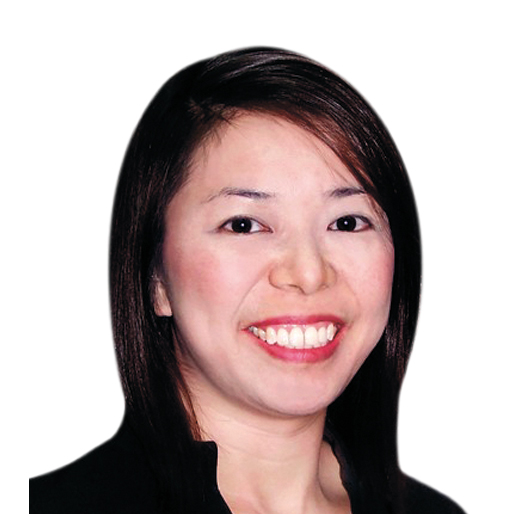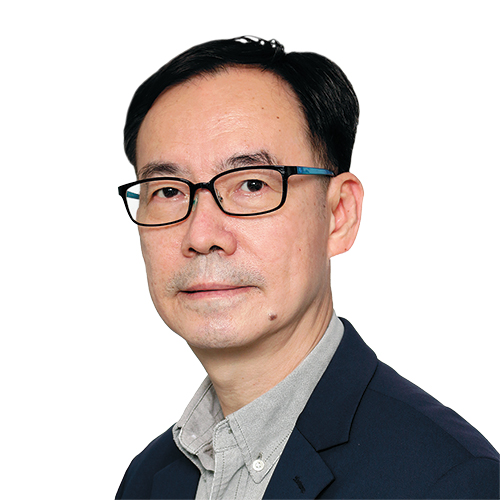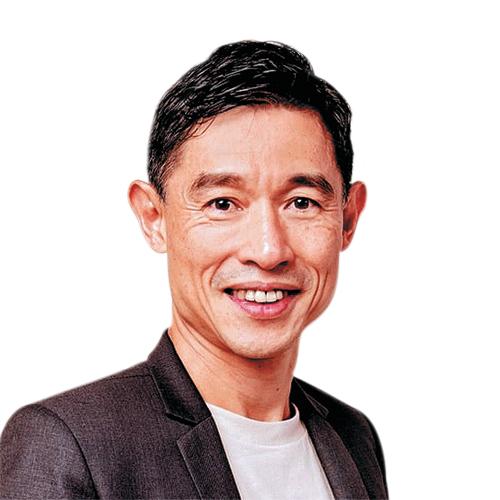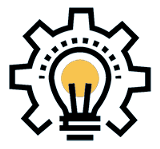Taking The Next Step Forward
Three experts in the field of work, jobs and skills share their insights on the value of non-stop learning and upskilling.

Many of history’s great visionaries had the same fundamental idea about learning — that it should never stop. Michelangelo is widely thought to have said that he was still learning at the grand old age of 87. Einstein was of the view that learning should start at birth and cease only in death. And Steve Jobs believed there’s always “one more thing” to learn. As the nature of work and the workplace evolve at an ever-quicker pace, the key to thriving in such a dynamic job environment is through constant self-betterment and learning. Whichever stage of their career they may be at, graduates need to continue to upgrade and expand their skillset by acquiring new knowledge. This will not only enable them to do their job well but will also open doors to new and perhaps surprising prospects. Here, two speakers and one participant at the upcoming inaugural NUS Lifelong Learning Festival provide their perspectives on the current and future demands of the workplace, and what it will take to succeed.

Ms Chelvin Loh
Director, SkillsFuture Singapore
Ms Loh tells us how she endeavours to create a lasting impact on the future of work and skills by making Singapore a skills-competitive economy.
Why is it important for university graduates to reskill?
The work environment, the nature of jobs and technology are constantly and rapidly changing. Therefore, it is important for graduates to layer on skills that their job function may require. This is especially so for mid-career professionals whose last formal education was some time ago. Fresh graduates may not have to reskill, but they should pick up behavioural and soft skills related to learning agility, teamwork and inclusivity.
What is the government doing to encourage graduates to upskill?
The SkillsFuture series is a curated list of short training programmes focusing on emerging skills in eight job sectors. Its aim is to encourage citizens to take ownership of their own skills development journey. SSG also rolled out the inaugural Skills Demand for the Future Economy (SDFE) Report last year, which gives fresh graduates insights on trends across sectors so they know the value of their skills and can make informed decisions about their career trajectory. We are also profiling learners to find out what skills individuals typically look to attain at different stages in their career, to provide them with solutions in a more timely and intuitive manner.
How does the government identify emerging skills required by the market?
We have a national jobs-skills repository that is dynamically updated with labour market intel. We mine this data to identify priority skills that are transferable across many job roles and sectors, and that can help graduates to prioritise their career options. We also look at job postings to see which skills are trending up or down. At the same time, we analyse the jobs and skills profiles of frontier firms, including leading firms in the Green Economy, Digital Economy, Care Economy and Industry 4.0, for new emerging jobs and skills.
What key skills are in demand?
Last year’s SDFE Report highlighted priority skills in the care, digital and green economies that can be applied across sectors. Care skills, for instance, involve inclusive and collaborative practices. Green skills deal with the environment, sustainability or compliance and reporting, while digital skills such as data analytics and technology application are important in many job roles. In SDFE 2022, we’ll be introducing a new pillar which is Industry 4.0, that comprises skills in areas like automation and robotics.
What would you say to graduates who feel no impetus to upskill?
First, employers are looking for these skills. If you do not invest in yourself by learning them, you lose out to peers who took the first step to do so. It is also good for individual development, because the future of work is changing and so are the needs of your next employer. So, upskilling yourself ahead of time might help you land your next dream job.

Dr Lou Kok Yong (Engineering ’85)
Director at DSO College, DSO National Laboratories
Graduating from NUS in 1985 with a Mechanical Engineering degree, Dr Lou went on to achieve a Master’s Degree and PhD in Aeronautics and Astronautics Engineering from Stanford University in California.
Tell us about your field of work.
As Singapore’s largest defence research and development organisation, DSO has been developing game-changing technological solutions to sharpen the cutting edge of Singapore’s national security for the last five decades. These would not be possible without our people. My role at the DSO College is to ensure that our staff receive all the training and development needs to succeed in their current roles and prepare for their future career aspirations.
How does DSO help its people to upskill?
People are DSO’s greatest asset. To develop them to their fullest potential, we set up a college right within the organisation to offer them curated in-house courses that are relevant to their work. Beyond DSO, staff are also encouraged further their education with a second Master’s or even embark on PhD programmes with sponsorships readily available to support their career aspirations. We also tap on NUS courses to learn about emerging topics and encourage learning anywhere and at any time, by subscribing to LEARN.gov.sg, a one-stop digital learning platform for public servants, which includes courses from the Civil Service College, Udemy and Harvard. From other knowledge-sharing and mentoring initiatives to comprehensive HR policies to encourage self-learning, DSO is on the path towards the vision of Nurturing a Learning Organisation.
What steps do you take to broaden your professional qualifications?
My educational background is in mechanical engineering and my previous role was mostly technical in nature. To better equip me for my job at DSO College, DSO supported my reskilling with an Advanced Certificate in Training and Assessment (ACTA), a train-the-trainer programme that gave me the competencies to function as a facilitator and a solutionist who can support the learning and development needs of the organisation. The training enables me to contextualise what I learn with my prior technical experiences so I can better perform my role at DSO College. These include developing in-house courses that are engaging with good learning experiences while producing the desired learning outcomes.

Mr Frank Koo (Business ’90)
Head of Asia, Talent and Learning Solutions, LinkedIn
Mr Koo has vast experience in organisational development and human capital management. He frequently shares his insights on topics like the future of work and employee engagement at executive conferences and webinars.
What changes have you seen in the workplace in the last five to 10 years?
The workplace is becoming more digitalised, so employees need to be digitally-savvy too. Furthermore, employers now go beyond paper qualifications to look at skills, especially digital skills, and many are spending a lot of resources to develop and prepare employees for their company’s digital transformation. Employees are focusing more on wellness and flexibility at work, especially after the last two years of COVID-19. They realise the importance of work-life balance and mental wellness. Hence, organisations that provide good support in these areas are better able to attract and retain talent.
Which skills are in demand in Singapore and across Asia?
There are three. The first are professional skills, like those of a doctor, lawyer or engineer. These need to be deepened over time. The second are digital skills, which we all have to learn in order to do our job well, operate technology, and work with others across the world. And the third are soft skills like critical thinking, leadership, communication, collaboration and creativity. These are can be carried over to different jobs.
How do we future-proof our careers?
Develop a sense of curiosity. Constantly look out for new ways to do things or improve on them so that when it comes to a bigger learning requirement, you’ll naturally be eager to take it up. Develop a growth mindset and know that we can always be better if we acquire new skills and take on new responsibilities. This combination of curiosity and a growth mindset will allow us to pick up different types of learning along the way, some of which are deep learning that will enable us to take on different roles or go into different industries. When this happens, our career can be future-proof.
 4 things to know about the NUS Lifelong Learning Festival 2022
4 things to know about the NUS Lifelong Learning Festival 2022
Here is what to expect from the inaugural event, which will revolve around the theme “FutureWork: Thrive in the Future Workplace”.
Challenges, accepted.
Gain insights from over 30 industry leaders and NUS experts on how to tackle emerging challenges in the future of work. For example, the FutureWork Panel Discussion features Mr Frank Koo from LinkedIn; Mr Dean Tong, Managing Director and Head, Group Human Resources, United Overseas Bank Limited; and Professor Fong Kok Yong, Deputy Group Chief Executive Officer (Medical and Clinical Services), SingHealth.
New economy, new skills.
Learn which competencies will take you higher in the new economy. Ms Chelvin Loh from SkillsFuture Singapore will reveal the skills that individuals and companies should prioritise to stay ahead in the future economy.
Take part in exclusive masterclasses.
These smaller group sessions, which will be held during the afternoon session of the festival, will focus on four areas: the care economy, the digital economy, the green economy and Industry 4.0.
Meet the who’s who from your industry.
Here is your chance to flex your networking muscle during this meeting of minds. Those who will be attending include top business leaders from CEOs to human resource leads, as well as professionals who want to stay relevant in this ever-changing landscape.
Look out for new lifelong learning initiatives and benefits for alumni to be announced at the event.
NUS Lifelong Learning Festival 2022 will take place on 19 July, from 9.00am to 5.30pm, online and in-person on NUS campus.
Visit lifelonglearningfestival.nus.edu.sg for more information!